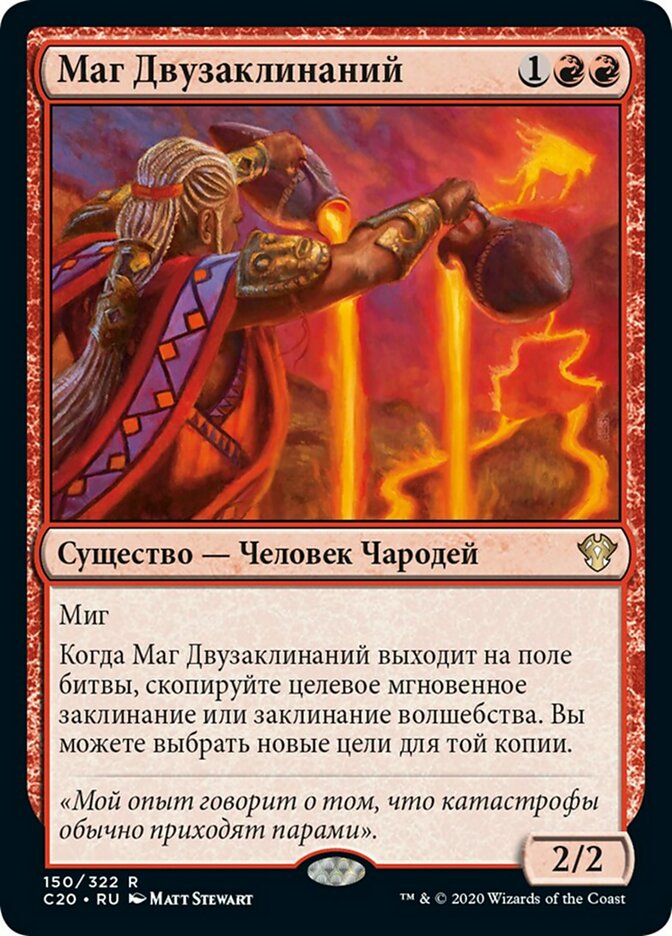
Маг Двузаклинаний {1}{R}{R}
Существо — Человек Чародей
Миг
Когда Маг Двузаклинаний выходит на поле битвы, скопируйте целевое мгновенное заклинание или заклинание волшебства. Вы можете выбрать новые цели для той копии.
«Мой опыт говорит о том, что катастрофы обычно приходят парами».
2/2
Illustrated by Matt Stewart
- Standard
- Not Legal
- Alchemy
- Not Legal
- Pioneer
- Not Legal
- Explorer
- Not Legal
- Modern
- Not Legal
- Historic
- Legal
- Legacy
- Legal
- Brawl
- Legal
- Vintage
- Legal
- Timeless
- Legal
- Commander
- Legal
- Pauper
- Not Legal
- Oathbreaker
- Legal
- Penny
- Not Legal
Toolbox
Buy This Card
Notes and Rules Information for Маг Двузаклинаний:
- Only the English version of a Magic card receives Oracle updates and errata. View this card in English. (Scryfall note)
- Dualcaster Mage's triggered ability can target (and copy) any instant or sorcery spell, not just one with targets. It doesn't matter who controls it. (2016-06-08)
- As Dualcaster Mage's triggered ability resolves, it creates a copy of a spell on the stack. The copy isn't cast, so abilities that trigger when a player casts a spell won't trigger. (2016-06-08)
- The copy will have the same targets as the spell it's copying unless you choose new ones. You may change any number of the targets, including all of them or none of them. If, for one of the targets, you can't choose a new legal target, then it remains unchanged (even if the current target is illegal). (2016-06-08)
- You can't choose to pay any additional costs for the copy. However, effects based on any additional or alternative costs paid for the targeted spell are copied as though those same costs were paid for the copy. (2016-06-08)
- If the spell is modal (that is, it says "Choose one —" or the like), the copy will have the same mode. You can't choose a different one. (2016-06-08)
- If the spell has an X whose value was determined as it was cast (like Earthquake does), the copy has the same value of X. (2016-06-08)
- If the copy says that it affects "you," it affects the controller of the copy, not the controller of the original spell. Similarly, if the copy says that it affects an "opponent," it affects an opponent of the copy's controller, not an opponent of the original spell's controller. (2016-06-08)